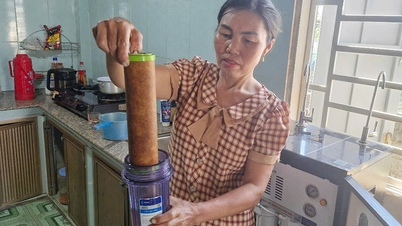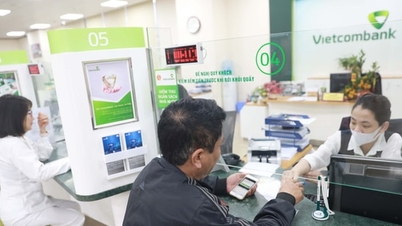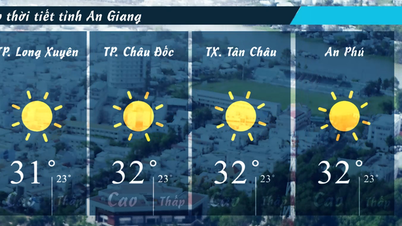Platforms like Facebook, TikTok, Instagram, YouTube, etc. have become places for users to entertain, connect with friends, and study. However, along with the benefits, the online environment brings many potential risks. Therefore, parents often monitor their children through social media accounts, with the desire to protect them. Although it comes from a legitimate purpose, sometimes monitoring is counterproductive, unintentionally infringing on privacy, and hurting the feelings between parents and children.
Ms. Tran Thanh My (residing in Long Xuyen City) expressed: “In the online environment, everything happens quickly, is difficult to control, and is difficult to distinguish between truth and falsehood. At the age of adolescence, awareness is still limited, children easily become targets of bad people, or are exposed to inappropriate content. From violent clips, fake news to dangerous challenges, cyberbullying... all can have a negative impact on children's psychology and behavior. Faced with this situation, we need to observe and monitor to know what content our children are exposed to, thereby taking timely measures to protect them."
Many parents choose to make friends with their children on social networks, silently observing their posting activities, comments, and friend lists. However, some parents also ask their children to provide their account passwords so they can easily check their messages and online relationships. Some parents even install monitoring software on their children's mobile devices without prior notice, to track their children's location, web browsing content, and phone usage time.
Parents need to supervise their children in a respectful and appropriate manner.
If this monitoring is done properly, parents will have a clearer view of their children's mental life, and early detection of abnormal signs: sadness, isolation, being shunned by friends, being influenced by extremist views. Immediately, parents can intervene promptly; control the time their children spend online, limit phone addiction, and neglect their studies.
However, every action has two sides. If supervision exceeds the limit, it can easily be counterproductive. For many teenagers, social networks are not only a place for entertainment, but also a "digital diary" - a place where they express their thoughts and feelings in the most authentic way. When parents invade this space without their consent, children will develop a rebellious mentality and feel a loss of trust in their parents. In addition, extreme parental supervision will create dependence in children's perception. Instead of learning to self-evaluate and make decisions, children will always look to their parents for approval, losing their ability to be self-reliant and critical. In the long run, this weakens their independent personality development and ability to adapt in modern society.
Ms. NTT (residing in Phu Tan district) shared: “I made friends with my child on social networks to monitor. After a while, when I didn’t see any activity, I asked him to provide relevant information about his accounts for checking. He still provided it, but then he became unhappy, communicated less with his parents, and distanced himself.” At the age of adolescence, children are prone to rebellious and confrontational psychology. When feeling their privacy is violated, some children may choose to “hide”: Create a secondary account, use a nickname, or switch to another platform without their parents knowing, making monitoring meaningless.
Supervision does not mean taking complete control, but creating a safe space, allowing children to develop freely, but still having a companion behind them. Therefore, parents need to change their perspective from control to companionship, together establishing rules for using the Internet: time spent surfing the Internet each day, types of content to avoid, how to react when disturbed, and identifying potential risks. When children are involved in the decision-making process, they will feel respected and be more willing to share.
In addition, parents should regularly talk and listen to their children with an open, non-judgmental attitude. Sometimes, sharing information they have just seen on social networks can also be a bridge for both sides to understand each other better, and parents can partly understand their children's thoughts and opinions on this issue. In addition, parents should also improve their understanding of technology and update social networking trends to keep up with their children in the digital world .
In the context of social networks becoming an indispensable part of young people's lives, parental supervision of their children is necessary, but it must be done reasonably and flexibly in a spirit of respect, so that parental love is not misunderstood as excessive control.
MY LINH
Source: https://baoangiang.com.vn/phu-huynh-giam-sat-con-tren-moi-truong-mang-a420647.html



![[Photo] Prime Minister Pham Minh Chinh receives a bipartisan delegation of US House of Representatives](https://vphoto.vietnam.vn/thumb/1200x675/vietnam/resource/IMAGE/2025/5/28/468e61546b664d3f98dc75f6a3c2c880)


![[Photo] 12th grade students say goodbye at the closing ceremony, preparing to embark on a new journey](https://vphoto.vietnam.vn/thumb/1200x675/vietnam/resource/IMAGE/2025/5/28/42ac3d300d214e7b8db4a03feeed3f6a)

![[Photo] Vietnamese and Hungarian leaders attend the opening of the exhibition by photographer Bozoky Dezso](https://vphoto.vietnam.vn/thumb/1200x675/vietnam/resource/IMAGE/2025/5/28/b478be84f13042aebc74e077c4756e4b)





















































































Comment (0)